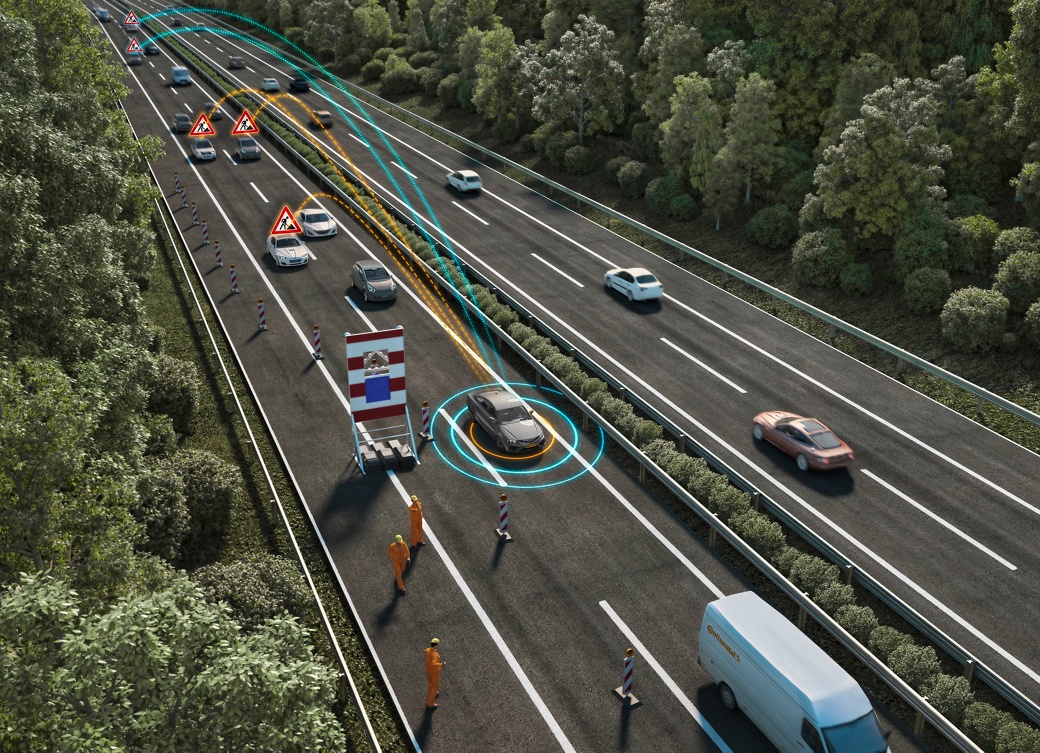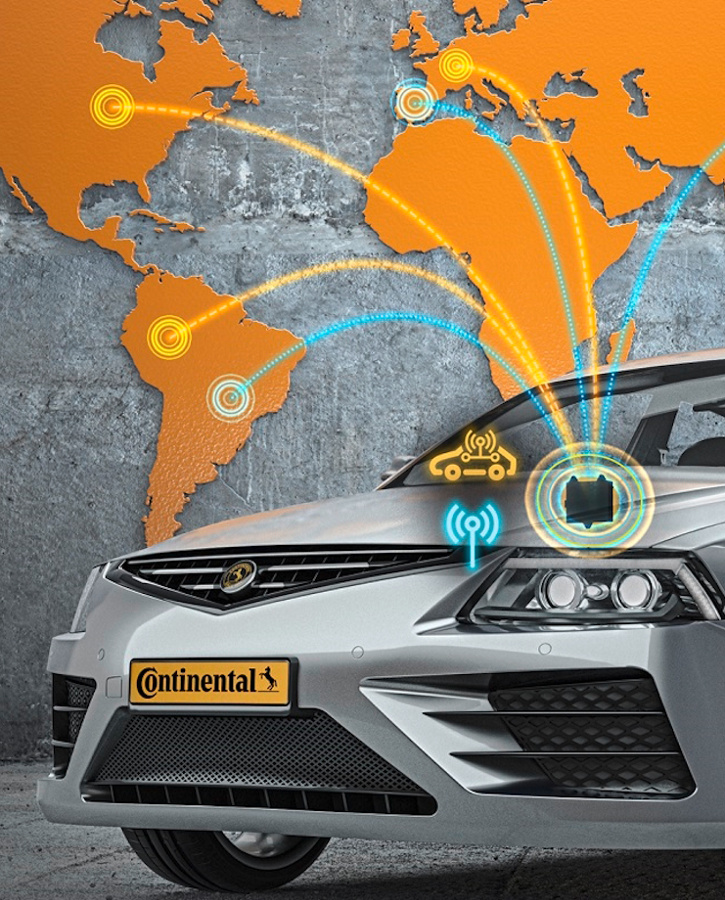Connected vehicles add a lot of comfort when it comes to state-of-the-art infotainment. But they also have the potential to make driving safer and more efficient by communicating directly with other vehicles, the infrastructure and the cloud. With Vehicle-to-X (Vehicle-to-Everything) communication, cars or commercial vehicles can exchange real-time traffic updates and road hazard information and enhance future safety assist functions.
V2X Communication for Real Time
Information Exchange
... between Vehicles, the Infrastructure and the Cloud.
Two Standards – One Solution
DSRC and C-V2X Integration

Continental’s Hybrid V2X solution integrates technologies for 4G and 5G network access, Dedicated Short Range Communication (DSRC) and Cellular-V2X (C-V2X) communication. This helps vehicle manufacturers to overcome a big challenge, when deploying V2X on a global scale: Some regions prefer the established DSRC and others lean towards the upcoming Cellular-V2X standard. With our hybrid V2X solution, the same hardware and software platform can be used to support either communication standard, reducing cost and complexity for a global application of V2X communication.
Cellular V2X (C-V2X)
Communication via Mobile Networks

Cellular V2X (Vehicle to Everything) communication has strong potential to become a key enabler for automated driving and intelligent mobility. C-V2X allows to communicate via the LTE network using the 3GPP Release 14, and in future, the 5G mobile network. Cellular V2X is also designed to directly connect vehicles with each other as well as with the infrastructure and further road users. Even in areas without mobile network coverage, C-V2X communication allows an exchange of time sensitive and safety critical information, for example about warnings of potentially hazardous situations.
Do you want to know more?
*If the contact form does not load, please check the advanced cookie settings and activate the functional cookies for the purpose of contact management.

